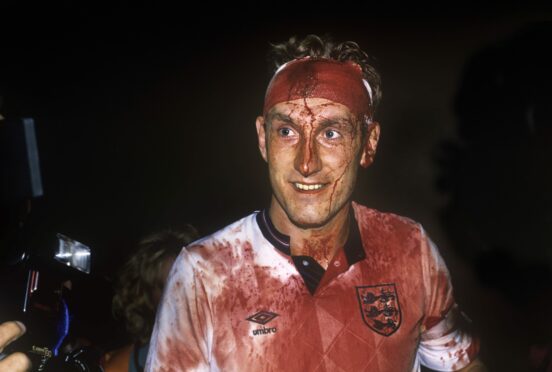
As anyone who enjoys watching a bit of TV drama will tell you, a bang on the head can be a treacherous thing.
One moment all is well with the world, the next you are in a strange place, covered in blood trying to work out what your connection is to the corpse lying just within skewering distance.
There will be detectives along to help you with that soon enough. But, oddly, they will be disinclined to believe your innocence, given the damning evidence.
When such injuries are not fictional but an occupational hazard, things get a lot more serious.
You only have to see the amount of attention given to a footballer who goes down clutching his head to realise that.
The potential for such injuries to lead to lasting issues – such as dementia – is appreciated now more than it ever was.
With recent research having proved the particular danger of layering one concussion upon another, strenuous efforts are being made throughout sport to make sure anyone not fit to continue is removed from the event.
In football, we now have special concussion substitutes to guard against the possibility of coaches – who have used up their quota of substitutes – trying to keep players on the pitch when they absolutely need to.
Fans who had to become used to five subs being a thing, now have to factor in the possibility of half-a-dozen replacements being in play.
In the interest of fairness, it is not only the player with the head knock’s team who picks up the extra allowance. If they get the chance to pick six, then the opposition do likewise.
These are relatively-new rules, and will take a while to sink in.
Changed days from when Partick Thistle boss John Lambie – on being told striker Colin McGlashan didn’t know who he was after a head knock – famously replied: “Great. Tell him he’s Pele and get him back on!”
But have the recent changes fixed everything?
Unfortunately not. Professional sport being what it is, people will always try to find a way to bend the rules, if not break them.
Already there are anecdotal reports of players injured late on, initially going down clutching a wounded leg only to suddenly throw their hands up to their head as if only just figuring out where the pain was actually coming from.
Managers, who would face sanction if caught suggesting deception from their players, are hardly likely to complain if the late switch of mind leads to them getting a “free” substitution.
Such is the potential seriousness of concussion, officials pretty much have to take all players who say their head has been hurt on trust.
No referee wants to be waving a concussion victim back into action.
While that remains the case, the potential for sharp practice will be there. Teams who are being swamped by the opposition will know this is one injury that will ensure a lengthy interruption.
The most-serious issue, though, involves players who have suffered a head knock but are prepared to make light of it in order to stay involved.
Terry Butcher playing on for England with a blood-soaked head bandage is one of the game’s most iconic images.
As much as times change, it would be nonsense to suggest modern- day stars – such Andy Robertson or Kieran Tierney – would willingly take themselves out of a Scotland game when something was on the line.
Logic then suggests the sensible thing is to take matters out of their control.
To remove anyone with a head knock to give them a chance to be properly assessed on the sidelines.
Temporary subs can then be sent on in their place, to ensure the player’s side is not significantly disadvantaged while the checks are carried out.
By allowing the injured player the chance to get back out there, provided all is well, you remove any incentive to tell white lies. Assuming that is, the victim is in any position to make them up.
The small but significant tweak to the rules is being advocated by a group of former players including Alan Shearer and Chris Sutton, whose father Mike, a former footballer, died after a long battle with dementia.
It is time to do like the fictional detectives do, and refuse to trust the word of someone newly thumped on the head.

Enjoy the convenience of having The Sunday Post delivered as a digital ePaper straight to your smartphone, tablet or computer.
Subscribe for only £5.49 a month and enjoy all the benefits of the printed paper as a digital replica.
Subscribe